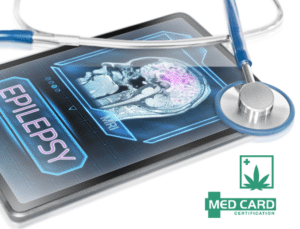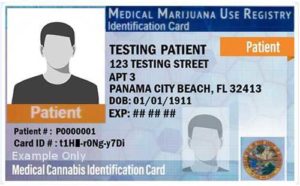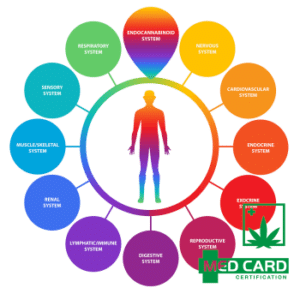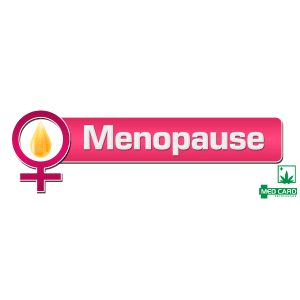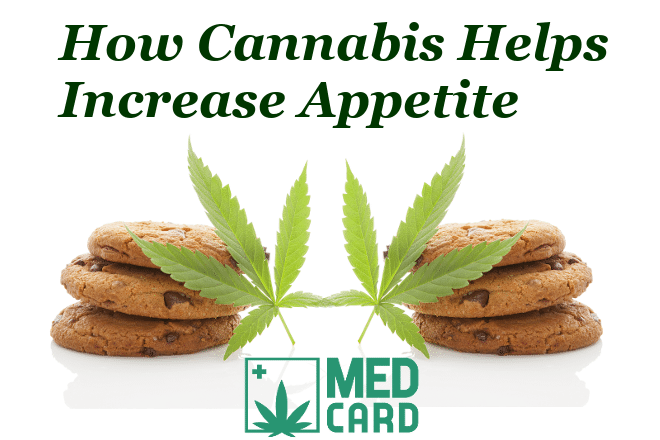
How Medical Marijuana Helps Increase Appetite
- Medical marijuana offers a safe and effective treatment for appetite loss
- How medical marijuana improves appetite
- Studies on medical marijuana and appetite
- Best ways to use cannabis products to improve appetite
- Best medical marijuana strains for increasing appetite
The marijuana munchies have been employed as both a punchline and an overused trope in many sitcoms, movies, and even cartoons. The scene in which an unsuspecting character smokes marijuana for the first time then devours a whole pizza and a dozen donuts has been played out hundreds of times.
There are, however, instances in which the munchies are viewed not as a comedic cliche, but as a life-sustaining game changer for people suffering from anorexia, cancer, dementia, HIV/AIDS, and cachexia. The consumption of medical marijuana allows these individuals to overcome detrimental weight loss and stimulate their appetites while ingesting lifesaving calories and nutrients.
Medical marijuana is a relatively safe way to stimulate appetite. Marijuana use has mild side effects, compared to many pharmaceutical medications used for this purpose such as Megestrol, which has potential hormonal side effects and may cause blood clots, and Oxandrolone which can cause changes to cholesterol and hardening of the arteries.
Certain strains of medical marijuana could be a life-sustaining, side-effect-free option for these individuals and ease them on the road to appetite recovery.
What causes appetite loss?
According to a recent report from The National Eating Disorders Associate (NEDA), there are myriad reasons for appetite loss aside from anorexia and cachexia. Certain medications, chemotherapy, COPD, acid reflux disease (GERD), and dementia can also provoke a severe loss of appetite.
Chronic nausea often plays a significant role in appetite suppression. When a patient can’t keep food down they soon lose interest in food. Some patients even experience nausea just from smelling food.
Additionally, there are often psychological aspects to appetite loss. Many anorexia nervosa patients are susceptible to highly intrusive thoughts similar to patients suffering from OCD. These invasive thoughts may exacerbate stress levels and worsen appetite.
A recent report from NEDA states that “two-thirds of those with anorexia show signs of an anxiety disorder (including generalized anxiety, social phobia, and obsessive-compulsive disorder) before the onset of their eating disorder.”
There is also a strong link between eating disorders and endocannabinoid deficiencies. The human endocannabinoid system (ECS) is responsible for many vital functions, including appetite, food intake, nutrient absorption, and metabolism.
Another detrimental effect of a deficient ECS is a compromised insula. The insula is the region of the brain responsible for regulating emotions and stress that allows eating to be an enjoyable experience.
The application of certain phytocannabinoids — the active compounds found in medical marijuana — has been shown to both stimulate appetite and relieve other symptoms associated with these conditions in some patients.
How does medical marijuana help increase appetite?
There are many reasons medical marijuana can increase appetite. An obvious reason is marijuana’s ability to induce a state of euphoria and alleviate both anxiety and depression. Reducing psychological stress can elevate hunger levels by invigorating the pleasure center in the brain, thus allowing enjoyment of food intake.
Consumption of medical marijuana may also enhance the sense of smell making food more appealing and better-tasting to some patients.
A compromised endocannabinoid system also reduces the production of anandamide, a naturally occurring endocannabinoid believed to modulate the reward aspects of eating behavior and appetite. Anandamide works in tandem with the ECS and can effectively counteract the hormone called leptin, known to suppress hunger signals.
Medical cannabis also encourages the body to make ghrelin, a hormone that regulates emotions, pain, and our sense of taste and smell. It also communicates and triggers hunger.
Marijuana also enhances dopamine production, creating a sense of well-being that may positively reinforce the act of eating.
Studies on medical marijuana’s effects on appetite
A study published in the Biological Psychiatry Journal, in 2011 highlights the correlation between eating disorders and a compromised endocannabinoid system. The study reveals how appetite is enhanced with the application of cannabinoids.
The study involved the participation of 14 women with anorexia nervosa. The patients were administered daily doses of cannabinoids. The study concluded that the ECS in anorexia patients functions more efficiently with the application of cannabinoids.
In another study from Washington State University, delta-9 tetrahydrocannabinol (THC) was researched for its potential effect on the appetite of lab mice. After the administration of cannabis, the mice continued to eat after they were given a substantial meal. The research determined, at least in theory, that marijuana increases the levels of the hormone ghrelin. The study ascertained that marijuana interacts with the hypothalamus and that interaction increases ghrelin levels.
“We all know cannabis use affects appetite, but until recently we’ve actually understood very little about how or why,” explained Jon Davis, Ph.D., a researcher in the Department of Integrative Physiology and Neurosciences at Washington State. “By studying exposure to cannabis plant matter, the most widely consumed form, we’re finding genetic and physiological events in the body that allow cannabis to turn eating behavior on or off.”
There have been several other studies that support a link between the leptin pathway and the administration of medical marijuana Leptin is a hormone that regulates fat metabolism and glucose, essentially controlling the hunger response. When cannabis is applied, it “tricks” the brain into believing it is hungry.
How medical marijuana is used
There are several good options for marijuana delivery methods for appetite enhancement. It’s wise to start low and go slow when it comes to determining a patient’s optimal dose. Excessive consumption of THC, the intoxicating cannabinoid, can lead to an unpleasant experience. Microdosing THC (using dosages of five milligrams or less) is a wise choice for patients starting a medical marijuana regime.
Medical marijuana strains containing high CBD levels and low THC levels are a good bet. CBD is a non-intoxicating cannabinoid that can be extracted from hemp (cannabis strains with negligible amounts of THC). CBD has also been shown to improve anandamide uptake.
Patients who might be averse to any type of intoxicating effects can buy CBD online without a medical marijuana card.
Here are some delivery method options:
- Smoking marijuana flower is undoubtedly the fastest way to achieve relief and rev up the appetite. Smoking isn’t for everyone though – it can lead to coughing and dry throat issues and also raise blood pressure.
- Vaping (dry flower or cannabis oils) is another way to rapidly deliver cannabinoids into the system for fast relief and increased appetite. Some patients, however, experience severe dry throat from vaping.
- Tinctures and concentrates can be applied under the tongue for fast absorption into the bloodstream. They can also be added to food. Dosage is easy to control with the measured tincture dropper or concentrate syringe. These products take a little longer to kick in than smoking or vaping, but the effects are powerful and long-lasting.
- Edibles (baked goods, gummies, candies) are a fabulous way to ingest extra calories, but they can take up to an hour to reach full effect. The results are powerful and long-lasting, and famous for inducing the munchies!
- Cannabis transdermal patches offer long-lasting, time-released cannabinoid delivery. Patches are a convenient and discreet way of delivering cannabinoids throughout the day or night.
Medical marijuana strains for appetite stimulation
Some strains of marijuana are more effective at increasing appetite than others. And some strains might actually make matters worse. For this reason, it’s important to work with a strain that produces the right mix of active compounds.
In addition to cannabinoids, oily compounds called terpenes that give marijuana its distinct aromas can also help improve appetite, improve mood, and instill a sense of well-being. Some terpenes also increase the THC levels in the brain.
Terpenes that help increase appetite
- Myrcene is generally associated with aromas of mango, lemongrass, thyme, and hops. This earthy aroma is believed to produce a soothing effect, relieve muscle tension, and increase the overall effects of THC.
- Linalool has a delicate floral aroma found in lavender and is known for inducing relaxation, sound sleep, and also for its pain-relieving properties.
- Limonene has a citrusy scent usually found in citrus fruits. It is known to relieve heartburn, uplift moods, relieve depression and soothe gastrointestinal issues.
Best medical marijuana strains for increasing appetite
The following strains produce a combination of cannabinoids and terpenes offering appetite-increasing properties.
- Sweet and Sour Widow produces a balance of THC and CBD. It is known to be a great appetite enhancer, as well as a pain reliever and sleep inducer.
- Dutch Treat Haze is known to stimulate appetites and induce relaxation in both mind and body.
- CBD Yummy is a hybrid with a modest amount of THC. It is popular due to its powerful stress-busting, sedative, and appetite-stimulating effects.
- Sister is a sweet, citrusy strain that has a distinctive diesel-like aroma. It has a strong taste and is known to be a potent appetite stimulant.
Conclusion
We have overwhelming evidence that medical marijuana can stimulate appetite and greatly enhance the enjoyment of food consumption. Although this phenomenon has plagued many a stoner for decades, resulting in tighter pants and expanding waistlines, for individuals wasting away from appetite-destroying medical conditions, this phenomenon is a godsend.
Hopefully, as medical marijuana gains a legal foothold across the U.S. more and more individuals will experience relief from appetite-robbing medical conditions.
Sources and additional reading
- How to get a medical marijuana card
- Find medical marijuana doctors in your area
- Find medical marijuana dispensaries in your area
- The Truth About Medical Cannabis and Appetite
- Medicinal Marijuana: A Legitimate Appetite Stimulant?
- How cannabis affects appetite: Brain changes
- Brain Type 1 Cannabinoid Receptor Availability in Patients with Anorexia and Bulimia Nervosa
- 15 Medical Reasons for Your Loss of Appetite





